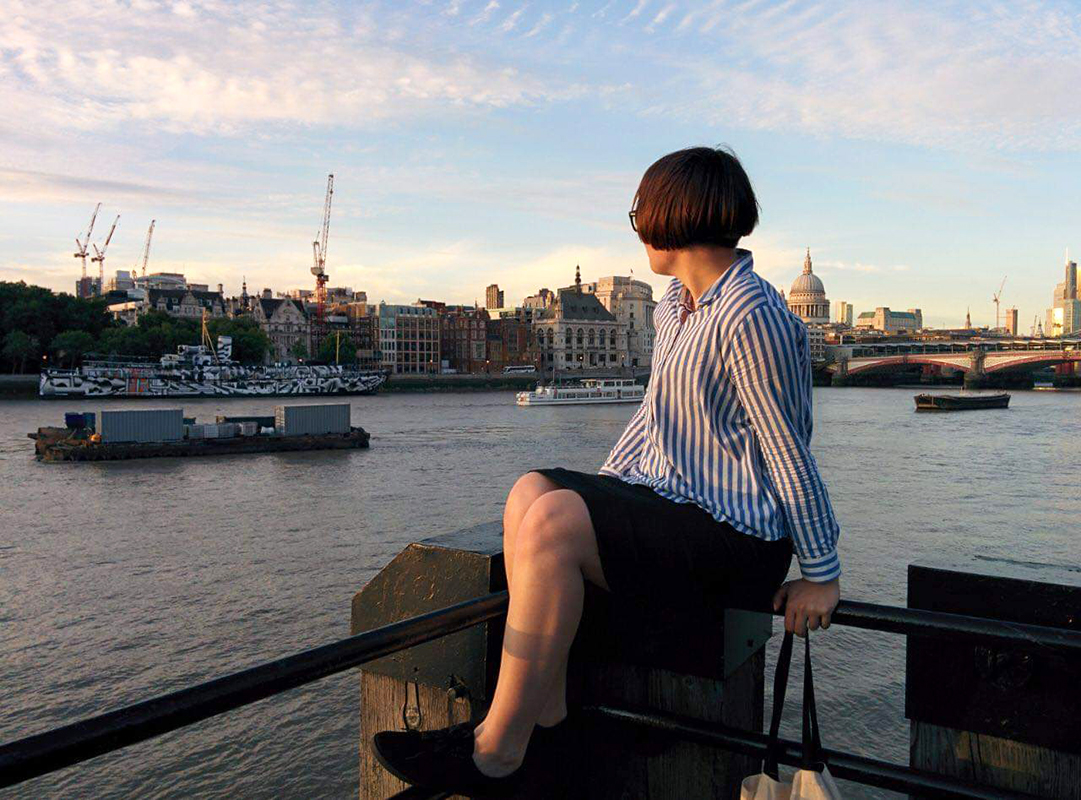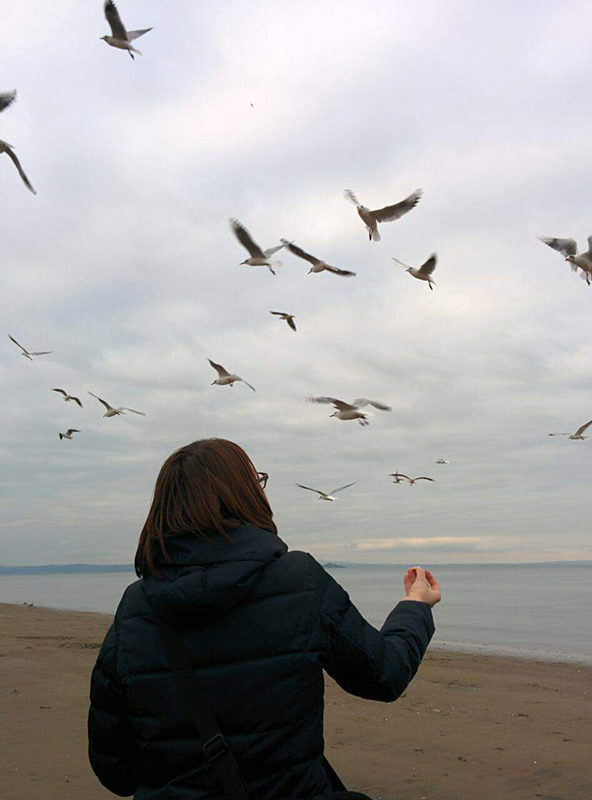“‘Stay away from me with your immoral European and homosexual values.’ If it was a person, that is what Russia would have said to me after listening to my story”. Those are the words that motivated Helena, a young bisexual Russian woman, to seek her sexual freedom in a new place.
Helena is a 26-year-old student who has been living in Ireland for four years with her husband. Her father is in the military and her mom is a psychiatrist. Helena’s parents got divorced when she was 11 years-old. After the divorce, Helena’s mother married another man who has become an essential figure in her life – “Because he was also a psychiatrist, I grew up listening to both of them talking about sexuality and human behaviour in a very natural way.”
The Russian woman makes it clear that her mother helped her comprehend her sexuality better. “My mom used to say that human beings should fall in love regardless of the other person’s gender, of the image they deliver to the world. So I do not see a man or a woman when I talk to a person; I try to see beyond that.”
Growing up in this environment, Helena went through her sexuality without thinking about it as a burden. “I never really believed my sexuality was an issue because of all the things my mother used to tell me.”
Helena came out to her mother at the age of 16. She describes this time as the turning point when people’s minds were bending towards segregation and discrimination in Russia. “As a kid, I never really thought of my country as being such a dreadful place for the LGBT+ community. I became a teenager seeing people expressing their love without fears. People were more open-minded back then. There was no such oppression, which encouraged me to come out as a bisexual woman.”
However, midway through her teenage years, she realised her home country had changed its mood drastically – it had become a dangerous place for any person who did not fit in the boxes society creates. “I was 18 when this Gay Propaganda law came about. Suddenly, I saw my country telling me that every part of my true self is disgraceful. From that moment on, anything interpreted as gay propaganda should be a matter of penalty or, in the worst scenario, imprisonment.”
Our young Russian woman says that this law was the primary reason she started thinking about leaving home. Russia was no longer a place for a person like her. Helena was seeking to love and be able to show this love without being considered a law-breaker for merely living her life.
Helena narrates an unfortunate event from the time she used to work in the Russian office of an American company. “Most of the guys from my department were my friends. Some of them were gay foreigners who had come to work in Russia, contributing to the development of the country. One day, this Russian guy from this department asked me to tell my gay friends not to shake his hand anymore.” These episodes became so common that Helena did not feel safe. “Every day I would hear new stories about people being arrested accused of making propaganda for homosexuals. In other words, they were dragging these people into jail to show their power over minorities.”

After some research, she found out that a life without these fears would be achievable in Ireland. “It sounds awful, but I felt that I would be seen as a normal person in Ireland. I would not have to hide my feelings from anyone or pretend that a girlfriend was just a friend.”
In this country, she found the freedom she had dreamed of. “The most significant change for me is that now I have friends who I can open up about anything with. Here, I do not see the people I love being psychologically and physically attacked by society and their government. We do not have to go to secret underground clubs if we want to have fun. I can be a Russian woman who likes guys but also girls, and nobody cares about that. And that feels great.”
A few months ago, Helena and her husband met another couple. From this friendship, a new kind of relationship arose, and they soon started a polyamorous romance. Besides her husband, Helena is now dating another man and woman.

“In Ireland, I feel comfortable to talk about my deepest feelings. There are still many people who see polyamorous relationships as just promiscuity. I am not sure if that is just a generational thing, but I feel very well accepted by my peers here. In Russia, opening up about the status of my relationship at the moment would be unimaginable since people believe that Europe is corrupting the world with immorality.”
These days, most of Helena’s Russian friends do not live in the country. She says it is heartbreaking to see people leaving home because they are tired of faking a new persona or terrified to be who they are. “In Russia, I would have to play a normal wife whose only destiny is to have kids and take care of the family. In Ireland, on the other hand, I see people living their relationships and experiences without worrying about further judgments.” According to Helena, Ireland allowed her to believe in her mom’s words again: love presents itself in different possibilities.
Making a parallel with the first paragraph, our interviewee highlights the difference between both countries. “Four years ago, Ireland listened to my story and said: Stay with us. You are more than welcome here.” And with a smile on her face, she finishes, “that is exactly what Ireland would have said to me if it was a person.”
This is the second of a series of interviews with people who were about to live openly and to the fullest after moving to Ireland. You can read the first one here.
© 2020 GCN (Gay Community News). All rights reserved.
Support GCN
GCN is a free, vital resource for Ireland’s LGBTQ+ community since 1988.
GCN is a trading name of National LGBT Federation CLG, a registered charity - Charity Number: 20034580.
GCN relies on the generous support of the community and allies to sustain the crucial work that we do. Producing GCN is costly, and, in an industry which has been hugely impacted by rising costs, we need your support to help sustain and grow this vital resource.
Supporting GCN for as little as €1.99 per month will help us continue our work as Ireland’s free, independent LGBTQ+ media.
